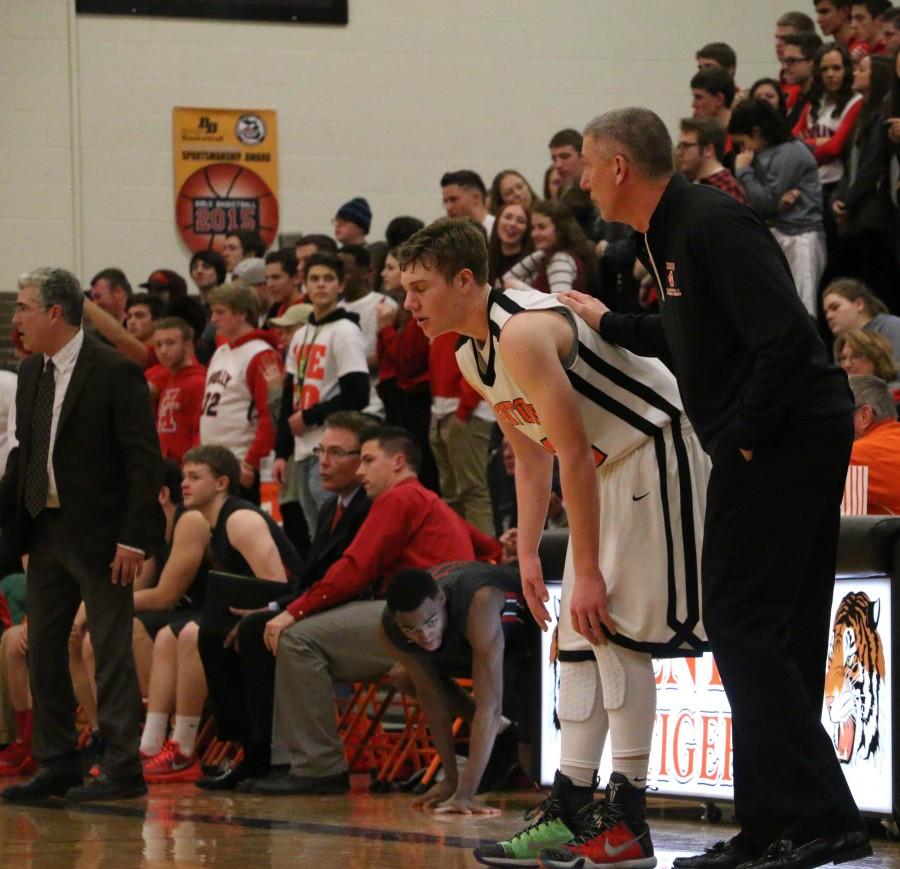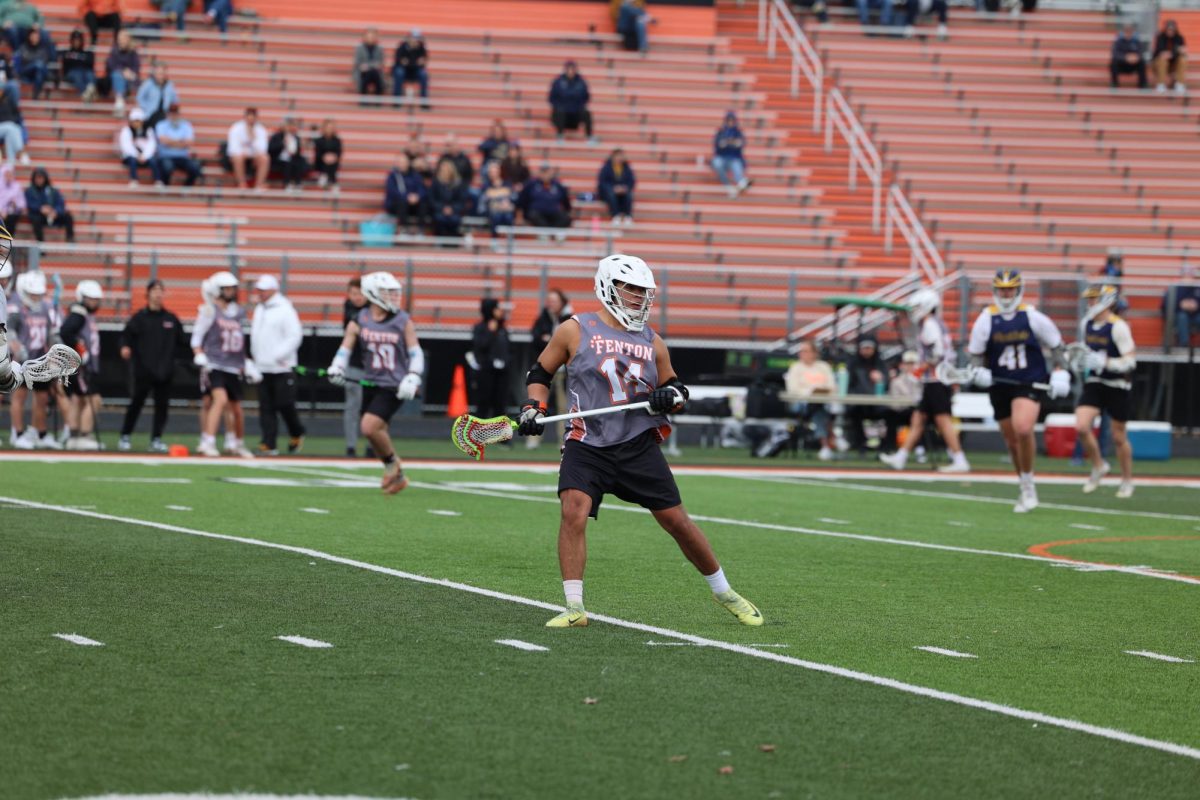Parent-coached athletes prove to be legitimate team members
PHOTO Erica Kolanowski
Senior Chris Gilbert awaits reentry into the game while his father, varsity basketball coach John Gilbert, prepares him for the remainder of the game.
February 17, 2016
It is the bottom of the seventh inning. Up by one run, the coach decides to pull the pitcher titled MVP and put his own son on the mound. Whether or not this was the best decision for the team, some parents sitting on the sidelines gripe at the decision, calling it “daddy ball.” The team could pull out a victory or lose a heartbreaker, but most of the parents will still think their boy would have done a better job than the coach’s son did.
“Daddy Ball” is a term used when it is the perception that the coach favors his kid over other teammates at the detriment of the team. His child’s playing time will always be above the team’s record. He or she must be the star. His kid pitches the big game when there are better options. His kid plays during crunch time, while others always sits.
Politics in sports is something that simply cannot be avoided. Senior Taylor Lawrence is coached by his father Shawn Lawrence in baseball, and demonstrates that this myth of “daddy ball” is untrue by his leadership on the field.
“It’s not easy. I know that I cannot slack off and I have to work very hard every day to prove that I’m not just playing because my dad is the coach,” Taylor Lawrence said. “I have to do everything he asks and go above and beyond the expectations that have been set. At the end of the day, I still have to show that I’m a player who makes an impact.”
Senior Chris Gilbert is coached by his father John Gilbert on the varsity basketball team. This is his second year of varsity, but his first year with his father as the head coach. Gilbert feels that having his dad as his coach provides benefits for the team.
“It really helps being able to talk about games and practices off of the court on a regular basis,” Chris Gilbert said. “It definitely helps create a better connection between the players and the coach. I was a starter for the varsity basketball team last year so I have, for the most part, already proved myself.”
First year varsity basketball coach John Gilbert sees coaching his own kid as a great opportunity in his son’s last year of high school.
“Separating coach from parent or player from child is a difficult task for everyone,” John Gilbert said. “When I make comments at practice as a coach, Chris has to try to understand that I am speaking as a coach, not as his dad. It is also difficult for me to separate him as a player from him as my son. I am probably harder on him than other players most of the time, but other times I might be more understanding of him because I know if he is having a bad day, sick, or tired because I see him at home.”
Students coached by a parent face more adversity than average student athletes, just because of a last name. However, coaches and players, father and son, agree that the bond made by a duo outweigh the negatives.










